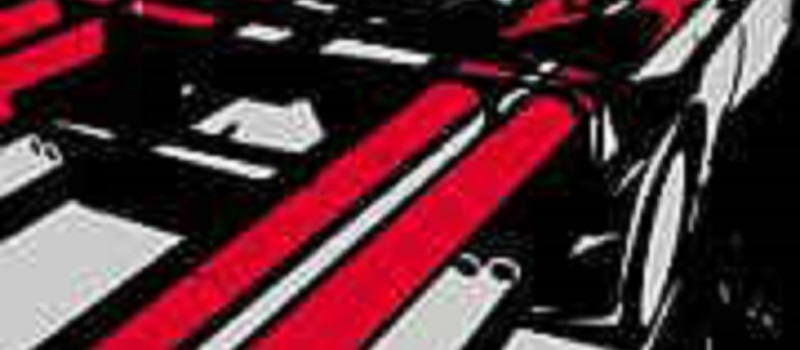Checkmate Savage, the debut from Glasgow’s The Phantom Band, is a special kind of mutant. A well-crafted hybrid of sounds as disparate as post-rock, folk-blues, pop, rock and techno and, damn, is it good. There’s not a dud on the nine-song disc, which is impressive given the scope of the task this sextet undertakes. Not content to merely jump from genre to genre, cutting and pasting the necessary segments along the way, the group displays an undying dedication to seeing how much they can wring from mashing the sounds together and doing it seamlessly. This isn’t genre-bending, as much as it is genre-blending. And, if April were December, we’d be measuring up Checkmate Savage as one of the great records of 2009.
The experiment begins with “The Howling,” which cruises from a dance-ready introduction with throbbing keyboards to a chorus whose punctuating backing vocals just might be paying homage to Frank Zappa. Then there’s the infectious “Burial Sounds,” where a pounding and almost tribal drum line collides with bridges of fragile acoustic guitar, and “Folk Song Oblivion,” whose grungy guitar line, all jagged edges, is looped around borderline carnivalesque keyboards and the resulting chorus descends/ascends into pop-rock bliss. These are just the first three songs, each unbelievable in their own way, and, 15 minutes into the disc, the group’s talent and ambitions are more than evident.
Press material for The Phantom Band’s Chemikal Underground release talks about prolonged studio sessions built around “long, meandering and experimental” jams and, the more you listen, the more that tends to make a lot of sense. The disc is focused and far from meandering but it sounds like the group took the best parts of its genre workouts and simply weaved them together to birth something inherently different. As a result, we get moments that reverberate with tones of classic rock (“Halfhound”) and others that flirt with the blues (the nine-minute “Island”). At one corner, they’re The Beta Band (“Left Hand Wave”); at the next, the lead singer channels Will Oldham and Bonnie “Prince” Billy over swamp-rock (“Throwing Bones”). The disc is nothing if not diversified. And did I mention these guys are clearly students of Captain Beefheart?
The Phantom Band also understands the inherent magnetic pull of repetition. It’s all over Checkmate Savage, whose songs often build around a central theme and pull in different directions from there. Whether it’s the drums of “Burial Sounds” or the central guitar segment that runs through “Island,” the sextet is focused on using repetition as a kind of building block; the songs’ “architecture”. On “Crocodile,” an incredible math-rock instrumental, the proceedings begin with palm-muted guitars and expand to include infectious drums and a pulsating bass line. Everything fits in its right place as we’re introduced to a humming keyboard line and the soaring moan of an e-bowed guitar. The song climaxes about five minutes into its 7:42 running time with full-blown distortion and capital-R-Rock strutting. But when the song ends, we realize the group has not abandoned that central guitar line that started it all. Instead, it goes on as it had before, the repetition burning an imprint in the listener’s mind.
The disc ends – even at 54 minutes, too soon – with the beautiful “The Whole Is On My Side.” It begins with simple narration: “I’m standing on the edge/ I’m looking over swaying from side to side,” the singer – harmony man Richard Princeton? guitarist Duncan DeCornell? – offers. “I’m jumping up and down / I’m rolling on the ground / I’m dancing on the edge of this / And it’s all around us now.” But the thing that’s most transfixing about the song is a simple acoustic guitar line, the gentle plucking of a few rotating notes here and there, an elegant and dreamy kind of narration all its own. After a somewhat-extended excursion into pop-rock terrain, the record ends with the shimmering echo of an electric guitar in isolation.
There’s plenty of reasons to love Checkmate Savage, from its ability to engage listeners on its own terms, to the craft it exhibits in blurring the lines between genres, to the way repetition works its own brand of special magic. I simply can’t file it away and stop listening to it. It’s an amazing disc, an early contender for the accumulation of all those best-of lists, and worth tracking down. You won’t be disappointed. – Delusions of Adequacy, April 15, 2009
-30-





could no hav said it better (-;
These songs are timeless qualities!